Qamishli is no longer the city of either black or white gold, as Syrians used to call it due to its natural oil wealth and cotton fields. The situation has now changed, and most oil wells have stopped working. Companies have pulled out of the Rmeilan field to the east of Qamishli after oil pipelines were broken and stolen, stopping the oil from reaching the refineries in the cities of Homs and Banias. Today, Qamishli suffers from a shortage of fuel for vehicles and heat, as well as cooking gas, as a result of the discontinuation of oil extraction. Garbage is piling up on the streets due to a lack of fuel to power garbage trucks. Electricity fares no better: people increasingly rely on generators due to constant power cuts.
Damascus Bureau correspondent Bakhtiar Hassan took the following photographs.
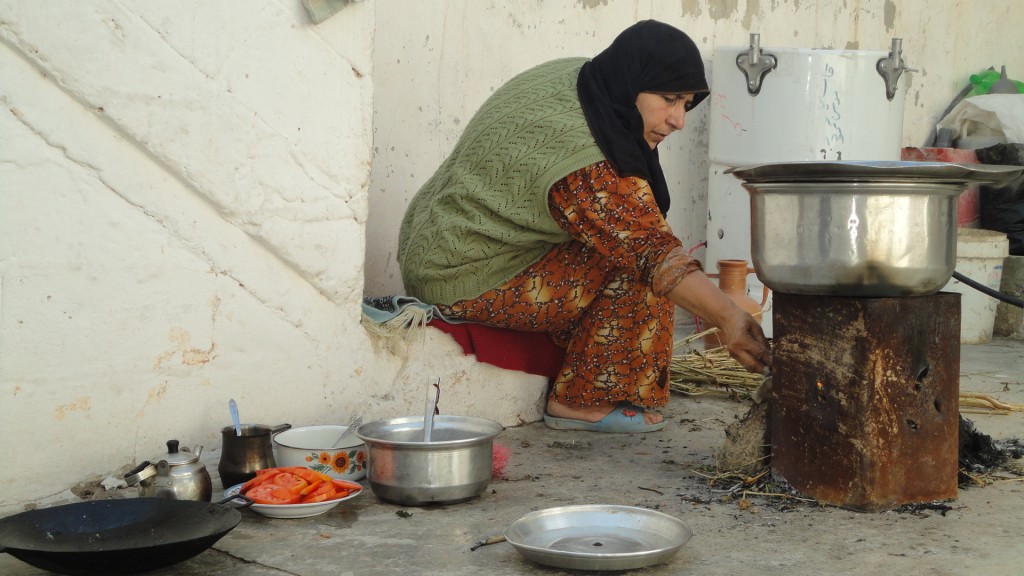
Mrs Halima cooks for her family on wood and sticks because she is unable to buy a canister of gas. In two years, the price of a canister of gas has increased from 450 Syrian Lira (around USD 9) to over 4,500 Syrian Lira (around USD 30). November 15, 2013.
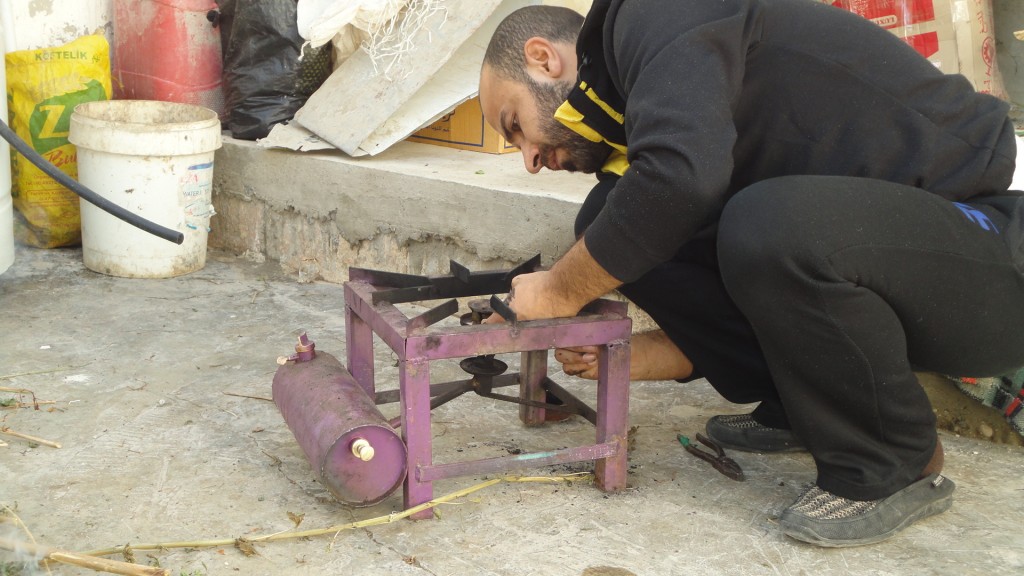
This young man is repairing a kerosene heater so his family can cook. November 15, 2013.

The kerosene heater repair business has flourished after Syrians began using them as cooking stoves due to a decrease in the price of kerosene in comparison with other fuels. November 23, 2013.

Some Syrians have taken to buying these electric pots imported from Turkey due to the increase in gas prices. Electricity is still relatively accessible through generators. November 23, 2013.

These empty gas canisters are for sale, there are owners no longer able to afford gas. November 23, 2013.

Businesses increasingly rely on electricity generators. November 23, 2013.

This old generator was previously used to pump water from wells far from the power grid. Now it is used to supply houses with electricity. November 23, 2013.

It is no longer strange to see bottles of petrol or diesel for sale in Qamishli. There is not enough fuel at petrol stations. November 23, 2013.

This gas station, like many others, is no longer in use. November 23, 2013.

Garbage piles up in one of the streets of the Wusta neighbourhood after the municipality was unable to collect it because of a lack of fuel. November 23, 2013.

The Jaghjagh river has become a garbage dump. November 23, 2013.

The appeal scrawled on this wall to not throw garbage proved useless. Residents need to get rid of their trash one way or another. November 23, 2013.

The buses in the Qamishli bus stop outnumber the passengers after ticket prices increased significantly because of rising fuel costs. November 23, 2013.

The fuel crisis has been ongoing for over a year. In this photo from summer of 2013, Ghassan and his four children ride a bicycle after taxi prices spiked. June 22, 2013.


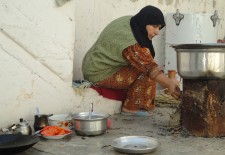

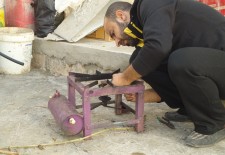

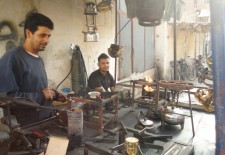

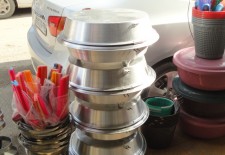

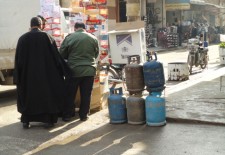

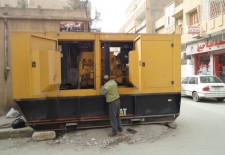

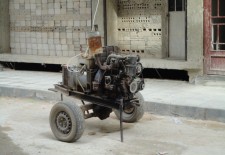

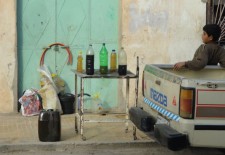

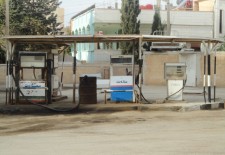

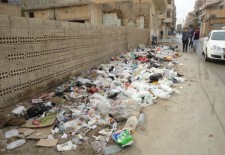

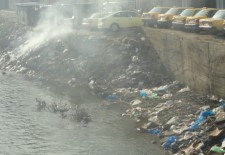

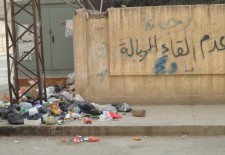

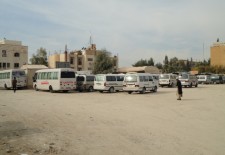

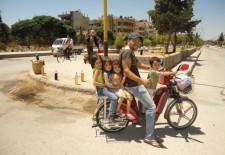


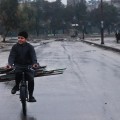


Social